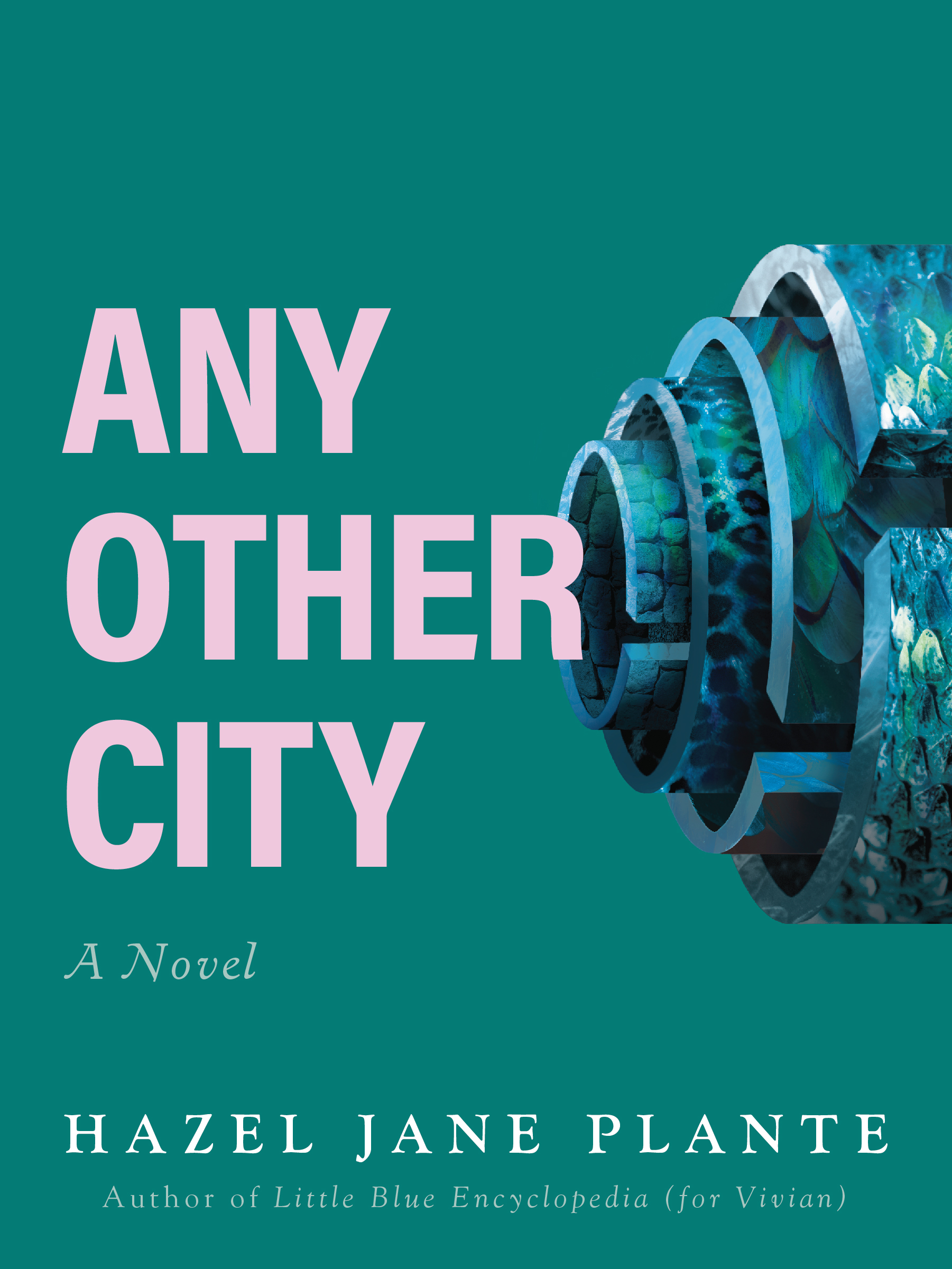Any Other City
by Hazel Jane Plante
Arsenal Pulp Press
288 pages
$23
Any Other City, the second novel from Vancouverite Hazel Jane Plante, doesn’t look like a novel. It looks like a memoir—the memoir of transgender rock star, Tracy St. Cyr. Over her memoir’s A and B sides, Tracy recounts two visits to a labyrinthine, dreamlike city: the first as a pre-transition fledgling artist, and the second, twenty years later, as a famous musician struggling to reconnect with her body and her music after a violent breakup.
This memoiric conceit isn’t the only way Plante plays with form in Any Other City. Much like poetry, neither italics nor quotation marks denote dialogue (italics denote text messages), blurring the distinction between action and speech. Wistful, erotic recollections—addressed to Tracy’s first girlfriend (A Side) and most recent girlfriend (B Side)—weave in and out of her present-day experiences, further leading to the novel’s hazy, dream-like depiction of time. Healing from trauma is, by its nature, a recursive, non linear process, one which Plante masterfully unravels. It’s as Tracy proposes: “Bodies don’t understand time.”
Perhaps the most noteworthy aspect of Any Other City is its sheer creativity. Plante excels at crafting a hyper-realistic facsimile of contemporary culture, referencing real artists like Thao & the Get Down Stay Down alongside fictional ones like Sadie Tang. Her prose is sharp, evocative, and detailed throughout, grounding Tracy and her music in a culture adjacent to contemporary Western society. Any Other City is a book delighted by art, especially the absurd and contemporary, and its descriptions of both visual exhibitions and Tracy’s lyric-writing process are candid, compelling, and wickedly funny. “Making meaningful art is really bloody hard,” says Sadie Tang. “It’s like learning to ride a wild horse, but it’s a different horse each time.”
Against the specificity with which Plante describes queer oyster bars and obscure albums based on real historical figures, the vagueness of the city itself, the titular ‘any other city’ stands out quite jarringly. Vast, contradictory, and unnamed, the city contains difficult-to-map alleyways whose residents sometimes speak a language Tracy doesn’t understand. Dream-like, the city can rewrite itself overnight, transforming a swimming pool into a coffee shop or a boxing gym into a dance club. While a potentially compelling metaphor for the ways that bodies react to trauma and the various histories they contain, especially transgender bodies, this fantastical element remains mostly unremarked upon, and perhaps could have been better served by more space to flourish.
Part memoir, part poem, part novel, and part song, Any Other City is lyrical, ambitious, and vulnerable—a font of queer joy, an ode to the healing power of sex and kinship, and a celebration of trans feminine love, sex, and bodies, across every messy multitude.














